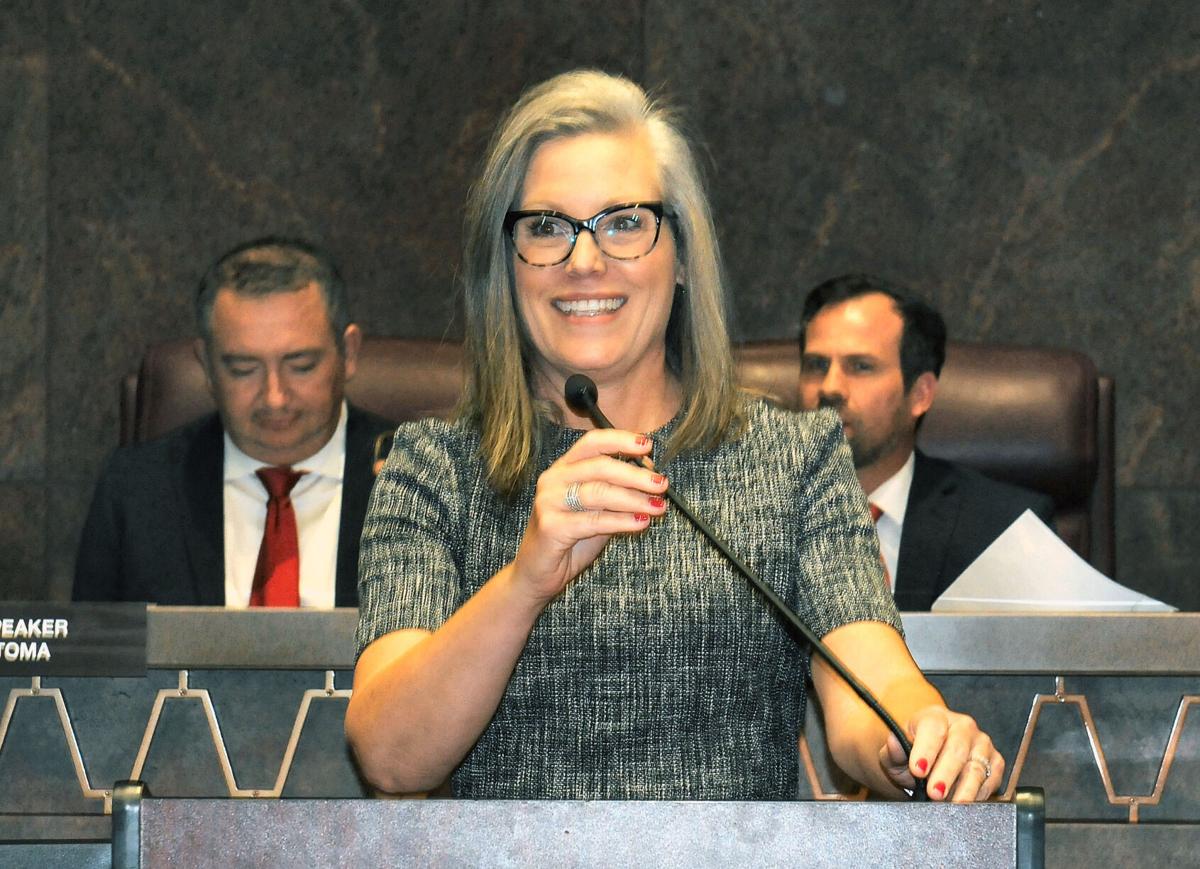PHOENIX — Gov. Katie Hobbs has given up on her demand to curb a program that allows any parent already sending their child to private or parochial schools to now get the bill picked up by taxpayers.
And that could leave her without the Democratic votes she needs for what Hobbs said is supposed to be a bipartisan budget.
A deal Hobbs negotiated with GOP leaders, unveiled Monday, continues in place the universal vouchers approved last year by the Republican-controlled Legislature and signed into law by Doug Ducey, her GOP predecessor. In fact, the $17.8 billion spending plan does not even pause enrollment for what are known as “empowerment scholarship accounts.”
Senate Minority Leader Mitzi Epstein said that’s going to be a hard sell for the Democrats.
“We are fighting tooth and nail,” the Tempe Democrat told Capitol Media Services on Monday. “We are going to the mat for the people of Arizona and not let this fiscally imprudent, downright irresponsible idea go forward.”
The key, Epstein said, is investing in public education so “all our kids can go to their dream school.”
Hobbs brushed aside questions about agreeing to unlimited universal vouchers.
“I’m not going to negotiate the budget here,” she said.
The agreement to leave universal vouchers in place is part of a larger deal that saw the governor get some wins and a few losses.
First created in 2011, vouchers were initially meant for students with special needs that could not be met in public schools.
Over the years, Republican lawmakers and governors have incrementally expanded eligibility to the point where it included foster children, children of military families, youngsters living on reservations and students attending schools rated D or F.
That was not a big deal when students were moving from public schools to private schools, as the vouchers of about $7,000 are roughly equal to state aid.
It was only last year, however, that lawmakers repealed all conditions with no income restrictions.
The biggest effect was that it immediately allowed those parents whose children already were in private schools — and being paid for with private funds — to now get vouchers for tuition, books and tutoring. It also opened the program up to parents who were teaching their children at home.
Hobbs, in her State of the State speech, decried the move, saying the program “lacks accountability and will likely bankrupt the state.”
She put the cost at $1.5 billion over the next 10 years.
That was backed up days later when her budget proposed to repeal the expanded program, returning it to where it was before 2022. She said that would free up more than $144 million — the amount that at the time was expected to go into the universal voucher program — to instead be put into K-12 schools.
That estimate proved way too low.
Legislative budget staffers said the program needs an immediate $274 million. And that’s just to finish this school year, more than twice as much as budgeted to deal with the approximately 42,700 enrolled in the universal voucher plan.
That may just be the beginning.
Legislative budget staffers said the number of students now eligible for the universal vouchers and expected to sign up should reach 62,200 by 2026. That has a price tag approaching $500 million. And that’s on top of the $176 million cost of the original program.
Hobbs said Monday that she remains convinced that universal vouchers are a bad idea.
“I think that we can agree that the voucher program is a drain on resources that should be directed at public education,” she said. But the governor, after acknowledging the deal to keep universal vouchers in place, denied that it was ever her intent to repeal the program — despite the fact that her own budget proposal would have eliminated the additional dollars.
“I didn’t say we’re going to end it,” Hobbs said.
“It is a goal, certainly,” she said, which is why she put it in her budget.
But Hobbs, for whom this is the first budget she has proposed as governor, said she knew she would have to negotiate with the Republican-controlled Legislature. More to the point, she acknowledged she wouldn’t be able to get everything she wanted.
“I knew from Day One in order to get a budget over the finish line it had to be bipartisan,” the governor said. “We are going to have to give some things up, the Republicans are going to have to give some things up.”
Epstein remains unconvinced that keeping universal vouchers in place is a good deal.
“We want all our kids to go to their dream school,” she said.
“But we can’t do it with a hole in the budget,” Epstein continued. “And right now we have a hole we have to address,” she said, regardless of philosophical arguments of who should be able to get state funds to go to private schools.





